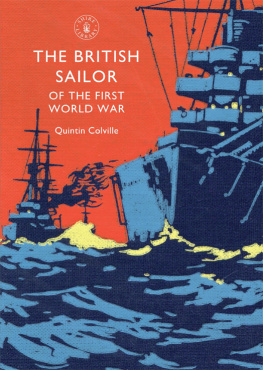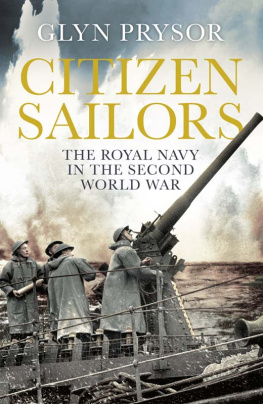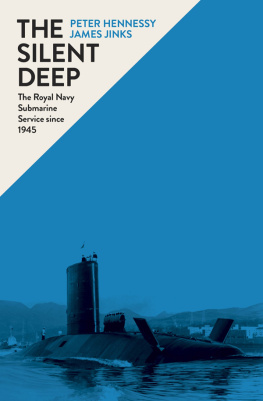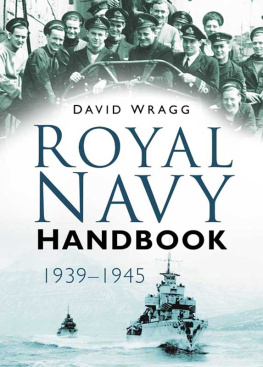SHALLOW WATERS
by
C. R. BENSTEAD

This electronic edition published in 2011 by Bloomsbury Reader
Bloomsbury Reader is a division of Bloomsbury Publishing Plc, 50 Bedford Square, London
WC1B 3DP
Copyright C. R. Benstead 1958
The moral right of author has been asserted
All rights reserved
You may not copy, distribute, transmit, reproduce or otherwise make available this publication
(or any part of it) in any form, or by any means (including without limitation electronic, digital,
optical, mechanical, photocopying, printing, recording or otherwise), without the prior written
permission of the publisher. Any person who does any unauthorised act in relation to this
publication may be liable to criminal prosecution and civil claims for damages
ISBN: 9781448206445
eISBN: 9781448206087
Visit www.bloomsburyreader.com to find out more about our authors and their books
You will find extracts, author interviews, author events and you can sign up for
newsletters to be the first to hear about our latest releases and special offers
IN MEMORIAM
ROBERT HALE
NOT LONG ago, after finding two irreconcilable accounts of the same episode, I asked a Cambridge historian what he considered the normal error of his colleagues in their presentation of historical incident, and I suggested ten per cent. He was very brave. I think my estimate astonished him more than the question, for his explanation that historians are concerned with trends and influences rather than detail left me in no doubt that he considered ten per cent far too low. The errors referred to here do not include those usually ascribed to the printer, of course, notable though some of them are. In particular I recall a mishap in the date of a wreck which prolonged the agony of her drowning crew for twenty years.
The problem of choosing between contradictory statements set a task in the writing of this book to which even the middle course was not always a solution, as when Sir William Hillary broke three ribs according to one authority and six according to another. Then there was the difficulty of keeping up with an ever-changing scene, a difficulty which the Official History of the War at Sea, published ten years after the war ended, obviously experienced, and failed to overcome, by sending one of His Majestys ships into battle with the armament which was removed from her, and replaced by a more effective pattern, before the war even started. But so small a solecism can never detract from the official courage in admitting that consistency really is the bugbear of little minds by leaving the reader to choose for himself between Skaggerak, Skagerak and Skagerrak for the spelling of that troublesome word.
All in all I feel I have, if not exactly licence, at least an august precedent for any lapses in chronology and consistency, and there is, in addition, always the historians comfortable umbrella to coverI hope with something to sparethose inevitable departures from fact, the sources of which custom ordains I should now reveal in a bibliography. It is therefore just as well that there cannot be one.
In his wholly admirable Thames Estuary, Mr William Addison lists 185 authorities. Here the Thames Estuary forms a single chapter, and there are twenty-three others. So it is not unreasonable to suppose that the number of books bearing on the subject matter of Shallow Waters runs into many hundreds, if not thousands, and readers acquainted with the immensity of the University Library at Cambridge will know that they do, just as they will know that I did not read them all! Indeed, I must confess that far more remained undisturbed on their shelves than ever I managed to consult. But it would not be altogether wide of the mark to picture me as a sort of overgrown bee flitting from flower to flower in that profitable growth, for it was there that I gathered most of my honey, and I could no more catalogue my flowers than a bee of normal size. Some I recall for the pleasure they provided, apart from their substance, such as the expert writings of Mr F. C. Bowen, the quaint disinterments of Commander Hilary Mead relating to Trinity House, and Mr Hervey Benhams astonishingly detailed descriptions of east-coast sailing craft; but my thanks must also go to a host that unavoidably remains anonymous and even, in part, unknown, for I have used material drawn from notes compiled thirty years ago, and what they were based on the Lord alone knows. And to this nameless multitude of authors must be added librarians, curators, private gentlemen and even public servants in Government departments who set aside affairs of state in order to answer my queries, and I trust no one will feel slighted if, in valediction, I single out for particular mention the Royal National Life-boat Institution whose help has been invaluable, and those patient young ladies in the University Library who must surely have thought, Heavens! Its that man again! before hurrying off to The Towerfortunately it has a liftin search of anything from back numbers of The Listener to bygone editions of Lloyds List, My thanks go to them all.
C.R.B.
Cambridge, 1957
Chapter I
Bound In Shallows
When darkness fell at Whitby on the evening of Friday, the 8th of February 1861, the signs were not good. The glass was going down. The wind, hesitant earlier in the day, had settled in the south-east and was rising steadily. By dawn it was blowing a gale. For the men of Whitby this was far from a new experience, and they were under no illusions about the demands it could make on them because they had seen too often what happened when sailing fleets were caught on a lee shore in a winters gale. Whitbys sands were notorious. Whitby, indeed, was among the first places in the country to have a lifeboat. Daybreak therefore found these men in oilskins and sea-boots, sheltering in little groups as they stared over a smother of foam at the surf which boiled in the shallows.
The trouble started about an hour after dawn when the Sunderland brig John and Ann drove helplessly on to the sands. Among those watching, as it chanced, were the coxswain of Whitbys lifeboat, John Storr, and six of her crew. But the lifeboat station was some distance away, too far, in Storrs judgment, if the brigs crew were to be saved. So the lifeboatmen took a near-by fishing-coble and launched that. It was a hazardous undertaking in the sea which was breaking on the beach, but they themselves were men of the sea, and they not only reached the disintegrating brig and took off her crew: they brought them safely ashore.
Storr led his men to the lifeboat station, completed his own crew, and waited.
Within an hour the Newcastle schooner Gamma, taking coal to London, had run aground, but there was no need to call out the lifeboat: Storr was on his way almost before she struck, and he saved everyone on board.
No sooner had he brought them ashore than the Prussian barque Clara, bound from Newcastle to Madeira, drove on the sands. So quickly did she break up that Storr barely had time to pull the last of her crew of twelve into the lifeboat before she collapsed in a welter of tossing timber.
The brig Utility was next to ground, and even as the lifeboat strove to reach her, still with the same crew at the oars, the schooner Roe joined her in distress. Storr went first to the Utility, then to the Roe, and returned with both crews crowded in the lifeboat.
That made fivecounting the John and Ann. One an hour. And the sixth followed almost immediately when the brigantine











